- Home
- Tim Lebbon
Predator: Incursion Page 3
Predator: Incursion Read online
Page 3
The impact of losing two of their family had yet to truly hit home.
* * *
“You’re not going to escort us?”
“Not unless there’s a good reason,” Mains said.
“Good reason? How about twenty-three bodies? Is that good enough reason?”
Mains glanced around the canteen at the stunned survivors. Men and women, there were tears and blank stares, shivering people and those who still could not believe. There were also several children, some of them huddled into their parents, a couple sitting side by side, bereft. Maybe they were the orphans. Mains felt bad for all of them.
A few indies had also survived, weaponless now, shorn of any semblance of control. They weren’t to blame for the massacre, but Mains still couldn’t bring himself to exchange words with them. If they’d been better trained and equipped, and more inclined to prepare for what might hit them this far adrift on the Outer Rim, perhaps they would have put up a more effective defense. Perhaps. But the past was done with.
“You think we should take this somewhere else, Commander Niveau?”
Niveau glared at him, but all his anger and bluster was hiding his own terror. He was in charge of this research base. He could never have anticipated the horror that had come to visit.
“But… it’s seventy days to the drophole—at least—and our orbit’s taking us further away all the time.”
“Good reason to start soon, then,” Mains said, keeping his tone even. “Please? Your office? Your people need to rest, eat, get strong for the journey. We can discuss everything else in private.”
“For Christ’s sake!” Niveau shouted. He was shaking, ghostly pale rather than flushed with anger. “You’re supposed to be here to—”
Mains turned his back on the commander and faced the survivors spread around the canteen, aware that most of them were hanging on his every word. He and his unit had arrived here to save them, after all, and now they were waiting to see what happened next.
Niveau fell silent, and Mains heard the creak of a plastic chair as he slumped down.
“Six hours,” he said. “That’s how long you’ve got. In that time you need to put this facility into hibernation. Gather any data and information you need to take back with you. Pack your personal gear. Flight crew, pre-flight checks on your Apollo transport commence in thirty minutes.” He nodded at the indies. “You gather the dead. Seal them all in coffin suits, put them in the Apollo’s hold, show them the respect you’d expect for one of your own. My people will isolate and secure the Yautja corpses. They’ll be going back with you.”
There was a flicker of unease at this last statement, but Mains could see the trust the scientists and their crew held for him. That was good, that was right—but to get that, he’d had to turn his back on their authority figure and effectively usurp him.
Before sending them on their way, he had to put that right.
I never signed up to be a politician, he thought, and he turned back to Commander Niveau.
“Your office?” Mains asked. It wasn’t really a question.
* * *
It was a sparse, functional space, with no luxurious trappings. A holo screen framed one wall, and data danced and jumped across it as they entered. Mains glanced at it, but it made no sense to him. Niveau viewed the screen for a moment, then muttered a command and shut it down. He sat in a chair behind his small desk and turned to Mains.
“That display back there—”
“Brian Willis was thirty-seven years old,” Mains said. “He was a private, passed over for promotion several times in the regular Colonial Marines because of a supposed rebellious attitude. He was in the 17th Spaceborne when I recruited him. The unit’s nickname is the BloodDoves, and Willis never really fit in. He wasn’t rebellious, he was curious. He didn’t like… order. Orders were fine, but he wanted to look beyond the next posting to some mining habitat or asteroid research station.
“He wanted more, so he came with me. Left behind a wife who didn’t really understand his wanderlust. She’s never even left Earth, so I guess you can figure how different they are.” Mains knew that everyone out here was different. Working close to or beyond the Outer Rim, at the furthest extremes of the ever-expanding Human Sphere of influence in this small corner of the galaxy. It took a certain kind of outlook.
“He died trying to lead a Yautja from a room where a couple of the indies were protecting one of your scientists and her family. If the Yautja had broken in and clocked the weapons, it would have killed them all. Probably quickly, because in the heat of the hunt they usually kill their prey as efficiently as possible. But we know that some of them can be sadistic.
“It might have been slow.”
“You’ve made your point,” Niveau said.
“Not yet. Not until I tell you about Lizzie Reynolds. Young kid, really, this was her first posting beyond the Sol system. Spent her first few years wearing a Marines beret on board Charon Station. It was General Bassett himself who saw the potential in her. She was a loner who worked well with a close unit. Sounds like a contradiction, but it really wasn’t. Lizzie wanted to see further, and go as far as she could, and she never once told me that she wanted to go home. Ever. Far as Lizzie was concerned, we could have patrolled the Outer Rim forever.
“We provide a service, Niveau. Lizzie knew that, and she died doing it.”
Niveau nodded slowly, and his eyes were wet. He was still shaking. Chances were, he’d continue shaking until he showered, ate, stripped, and was settled into his cryo-pod for the ten-week journey to the drophole.
He’s lost people, too, Mains reminded himself. A lot more than me.
“I’m sorry,” Niveau said. “I’m sorry for your dead.”
“Yeah… and I’m sorry for yours.”
Niveau stared at him for some time, as if readying to say something else. Then he pulled a control pad across the desk, brushed its surface, and swiveled to look at the display rising on the holo frame.
“Facility status,” he said. “My people are working quickly. Look, those blue areas have already been shut down into hibernation mode.”
Mains sat down in a padded chair, sinking into the cushion. What he wouldn’t give for a drink right now. But an urgency was growing in him, a need to get moving. He wanted to speak to his people again, and soon. Compare notes and thoughts. And more than anything, he was keen to send a message back to Excursionist HQ and get their take on things.
The VoidLarks had been surveilling a Yautja habitat beyond the Outer Rim for a little more than a year. It was a huge artificial vessel, several miles long, orbiting a star in one of the countless unexplored and uncharted systems beyond the Human Sphere. He was as certain as he could be that the Yautja who attacked this facility had not come from there.
“It’s good that your people are efficient,” Mains said. “They need to keep busy. There’ll be plenty of time to think about things later, and mourn the dead. But for now, I want you all away from here.”
“I’ve been here seven years,” Niveau said. “We’re doing important work. Genetics, medicine, using bacteria mined from just under the surface of the asteroid. This is one of only five places we know of where it exists. But… I never thought anything like this could happen. Never.”
“It’s space. Nothing’s ever safe. If it’s not something you know that kills you, it’ll be something you don’t.”
“Nice outlook,” Niveau said.
Mains shrugged.
“So why can’t you escort us?” Niveau asked. His voice was low, quivering slightly. The fear was real, the void of space suddenly deeper and darker to him than before. He’d become too settled here, in this place where comforts distracted from the promise of the uncaring, infinite vacuum.
“Because we’re doing something important, too,” Mains said. He gestured at the blank holo frame. “You’ll understand that. You know what Excursionists do?”
“Of course. Patrol the Outer Rim. Escort Titan ships as they mo
ve beyond the Sphere and build new dropholes.”
“That’s the easy part of it, yeah, but expansion isn’t easy. For the past year, maybe a bit more, my VoidLarks have been keeping an eye on a big Yautja habitat that’s been drifting past this sector, hanging around a star system several light years beyond the Sphere. It’s pretty inactive, seemingly without purpose, and it’s never seemed much of a threat. Nevertheless, that’s our job. We’re not just an escort service for Titan ships. We’re the sharp edge of defense for the human influence in the galaxy. Out there beyond the reach of human space exploration, making sure things are safe, trying to change things if they’re not.”
“These Yautja came from there?”
“I don’t think so. We’d have logged their ships leaving.”
“But you still came.”
“Your emergency call was passed through to us by another unit. You were lucky we were drifting back for a yearly resupply run, and we were closest to you. Otherwise…” Mains raised a hand and shrugged.
“They’d have killed us all,” Niveau said.
“Probably not. There’s evidence that if they attack a large population, they take captives.”
“What for?”
Mains stood, groaning when his knees clicked. He’d been in space for too long, and running on zero grav for long periods in the Ochse to cut down on telltale power trails. “Beats me. Nothing good, you can bet on that.”
“So you’ve got to get back to your post. Watching the habitat.”
“Especially after this.”
Niveau nodded. He didn’t like it, but he understood, and Mains respected him for that.
“It’ll be fine. Seventy days to the drophole in your Apollo, and your indies can stay awake to keep track of things. Oh, and what I just told you about the Yautja habitat we’re watching? That’s classified.”
“Of course.” Niveau stood and extended his hand. They shook. “Thanks.”
“It’s what we’re here for.” But Willis wasn’t there any more. Neither was Reynolds. Mains saw their faces, Willis’s stern smile that always seemed to hide something, Reynold’s enthusiasm. For the first time since leading the VoidLarks out from the Excursionist base at Tyszka’s Star, he would have to officiate at a funeral.
As he left the office, his comm implant chimed.
“L-T?” It was Faulkner, the signal coming from back on the Ochse.
“Yeah.”
“I’ve picked up a sub-space signal from the 13th Excursionists. They’re in full contact with Yautja on a deserted asteroid station, seventeen light years away along the Rim.”
“The SpaceSurfers,” Mains said.
“Yeah, Golden’s unit. Shall I respond?”
Mains closed the door behind him and stood in the silent corridor. It was quiet, peaceful, the air treated and scented for comfort, and far, far away, old friends of his might be dying. He felt like he shouldn’t be here.
“Acknowledge the signal, but we can’t help.”
“We need to get back on station,” Faulkner said.
“Open channel,” Mains said, and their communication was opened up to all VoidLarks.
It was time to move out.
* * *
Johnny Mains always thought that a deep space funeral was a strangely beautiful sight. An hour after lifting off from Southgate Station 12, he stood before his remaining crew and prepared to send two friends into the void.
Neither Willis nor Reynolds had any religious views, so the committal was short and sweet. A few words about each of them, some observations about their personalities and the brave way they’d both died, and an anecdote for each that brought a smile to grim faces. Then they all turned to watch the holo frame in their rec room, and Mains muttered his command to their ship’s computer.
“Frodo, vent the bay.”
A gentle hiss was all they heard, and then Reynolds and Willis were spat across their view of the void, both of them tumbling slowly from where the atmosphere had vented from the Ochse’s hold. It appeared that they traveled together, although it was inevitable that even a slight difference in trajectory would move them apart over time.
It was time that, for Mains, made this sight so enigmatic, even graceful. Gone from the world of the living, the two bodies now began their eternal journey through space. At every such funeral he had ever witnessed, it was always ensured that the coffin suits were fired away from Earth. Every moment of their journey was toward somewhere new and unknown, and whether or not they or their witnesses held any beliefs about soul, gods, or afterlife, this was a profound concept.
The dead had lost the ability to comprehend, but they could still commit to their avowed mission, and the purpose of any man or woman who decided to make their lives in the heavens—to explore, travel, and be a part of whatever else was out there.
“I always wonder if they’ll be found,” Cotronis said. Like everyone, she still wore her combat suit, and she had refused to wash the splash of Reynolds’ blood from her bald scalp—not until after the funeral.
“Shouldn’t be found,” McVicar said. A big man, sometimes harsh, a man of few words, Mains knew that he and Reynolds had enjoyed a gentle romance. Uncomplicated companionship, casual sex. An Excursionist rarely displayed deeper feelings, on the surface at least, because of the proximity of their existence with the others. But who knew what hid beneath the surface?
“No, I mean… later.” Cotronis brushed her hand over her stubbly scalp, pausing when she encountered the flaking blood. “Much later. A million years from now. Ten million. Maybe a billion years from now, when humans are dust, they’ll still be tumbling through space. Way beyond whatever extremes the Human Sphere might have reached before we wiped ourselves out, or something we found wiped us out.”
“Fucking hell, cheery bastard today aren’t we, Corp?” Faulkner said. He was a short skinny guy, brusque, but with a sharp mind. He was a private, but Mains sometimes called him their resident scientist. Always good to have someone like him in a unit like this.
“It is cheery, though,” Cotronis said. “That’s how I want to go. Not blown up or burnt to death or eaten by who knows what? Out there, like that. Drifting away.”
They all watched the screen. Mains liked the banter between his crew. But now the rec room felt horribly empty, and much bigger than before. Eight were now six, and the deaths would leave a hole that might never be filled.
“Until your ugly corpse gets in the way of a warping Titan ship and takes out five hundred people,” Lieder said, and they all chuckled softly. Even McVicar. Lieder was ever the comedian, and she usually knew just when to drop a funny. Now, she’d defused the maudlin tension Mains felt building, and one he knew would return again and again in the foreseeable future. They’d all been Marines for a while, some of them a very long time. Most of them had lost friends before, but that never, ever made it easy to accept.
Lieder glanced back and offered him a sad smile. Mains nodded.
A gentle romance, he thought. He’d even whispered that to Lieder once, lying in her bed, the two of them still sticky with sweat and breathing hard. She’d laughed and said, Didn’t feel that gentle to me.
“Let’s get to it,” he said. They were still watching the holo frame, even though the slowly tumbling coffin suits had shrunk to specks, and then disappeared completely. “Lieder, run the programs, set our course and let me know how long it’ll be. Snowdon, full systems check on the Ochse. I hate landing her, shakes things up. Unshake anything that needs doing.”
Lieder and Snowdon nodded, and Faulkner and Cotronis left the rec rooms to take up their stations.
“Suppose you want me to cook?” McVicar asked.
“Damn right. I’m hungry as hell.”
The big man nodded. “I’ll rustle up something. We need a treat.”
* * *
The Ochse was one of the fastest ships in the Colonial Marines’ arsenal. Specially developed for the Excursionist regiments, the Arrow-class assault and reconnaissance
vessel was a product of centuries of spacecraft technological advancement, FTL-drive research, and sheer dogged persistence.
The breakthrough to faster-than-light travel had come hundreds of years before. Breaking through into FTL travel had been akin to the time when humans first left the surface of their planet, in that the technologies required were unique, dangerous, and slow to develop.
Some of the early wars in space had shoved development along apace.
The limits discovered beyond FTL—in sub-space planes where traditional laws of physics were usurped and replaced by a science far more complex, and some would say almost eldritch—had always been crippling, in both physical and monetary terms. Wars aside, Weyland-Yutani had the money. It had the resources. And it had the desire to succeed, aggressively pushing the envelope of the Human Sphere at every point in the Company’s checkered history.
Once fallen, it had risen to prominence again and taken full control of the Colonial Marines, so that they were sometimes nicknamed the Corporate Marines. This made it not only the oldest and most powerful company in human history, but the most powerful entity, governments included. Since its troubled resurgence, its expenditure of time and money into experimental space-travel technology had multiplied a hundred times.
The Arrow class sat at the pinnacle of what was currently possible. While the Fiennes ships of the twenty-second century—great exploration vessels named after the first astronaut to venture beyond the Sol System—relied on light-travel technology, later ships such as the Titan drophole-builders could travel at small factors of FTL speed. Most Titan ships could reach five-times light speed. Some of the more powerful corporate vessels owned by the Company sometimes reached six or even seven-times.
Arrow ships could travel at fifteen-times the speed of light. The science involved was way beyond Mains, and even Faulkner suggested that there were probably only a handful of humans in the Sphere who even came close to understanding the concept and the mechanics. Fueled by refined and concentrated trimonite, it took several hundred tons of that ultra-rare mineral to provide fuel for a ship’s average year’s travel. The cost to build an Arrow ship was staggering. The cost of fueling it—the dangerous mining, transport, refining, and containment that went into production of the trimonite—was horrific.

 Ten-Word Tragedies
Ten-Word Tragedies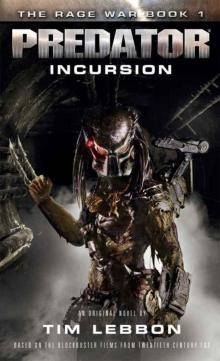 Predator: Incursion
Predator: Incursion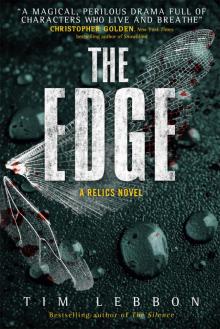 Relics--The Edge
Relics--The Edge Firefly
Firefly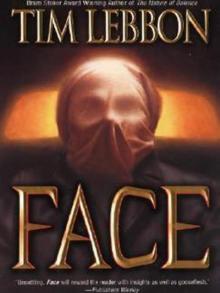 Face
Face Generations
Generations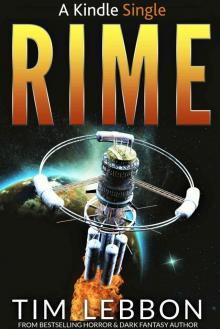 RIME (Kindle Single)
RIME (Kindle Single) Fallen
Fallen London Eye tc-1
London Eye tc-1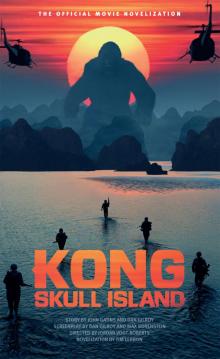 Kong: Skull Island
Kong: Skull Island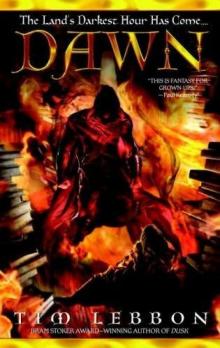 Dawn n-2
Dawn n-2 Into the Void: Star Wars (Dawn of the Jedi)
Into the Void: Star Wars (Dawn of the Jedi) The Everlasting
The Everlasting London Eye: 1 (Toxic City)
London Eye: 1 (Toxic City) Dusk: a dark fantasy novel (A Noreela novel)
Dusk: a dark fantasy novel (A Noreela novel) Coldbrook
Coldbrook Alien
Alien Dusk
Dusk The Cabin in the Woods
The Cabin in the Woods The Heretic Land
The Heretic Land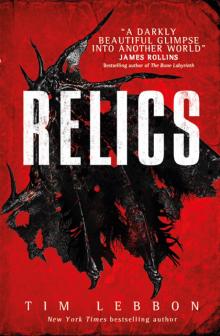 Relics
Relics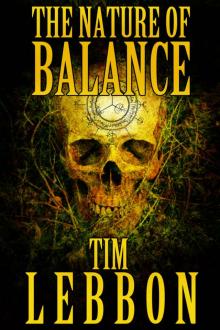 The Nature of Balance
The Nature of Balance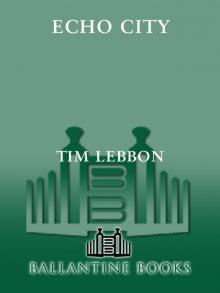 Echo City
Echo City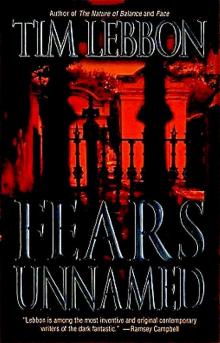 Tim Lebbon - Fears Unnamed
Tim Lebbon - Fears Unnamed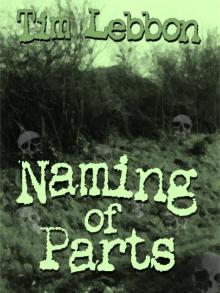 Naming of Parts
Naming of Parts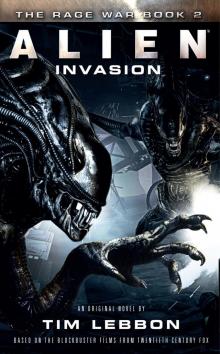 Alien--Invasion
Alien--Invasion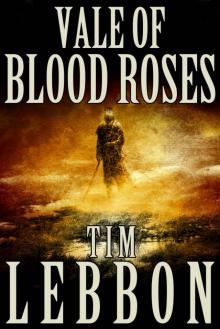 Vale of Blood Roses
Vale of Blood Roses Berserk
Berserk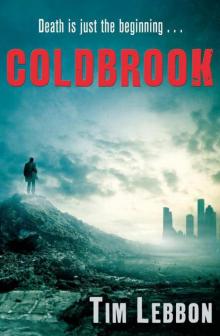 Coldbrook (Hammer)
Coldbrook (Hammer) Contagion tc-3
Contagion tc-3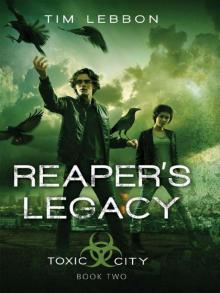 Reaper's Legacy: Book Two (Toxic City)
Reaper's Legacy: Book Two (Toxic City)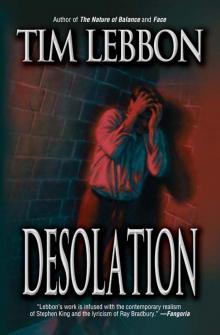 Desolation
Desolation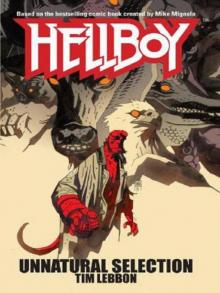 Unnatural Selection
Unnatural Selection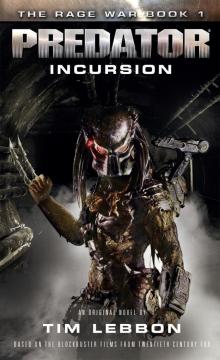 Predator - Incursion
Predator - Incursion London Eye
London Eye Contagion (Toxic City Book Three)
Contagion (Toxic City Book Three) The Silence
The Silence The Thief of Broken Toys
The Thief of Broken Toys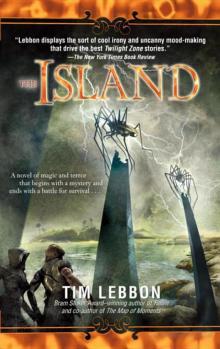 Tales of Noreela 04: The Island
Tales of Noreela 04: The Island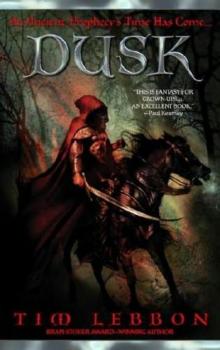 Dusk n-1
Dusk n-1 White and Other Tales of Ruin
White and Other Tales of Ruin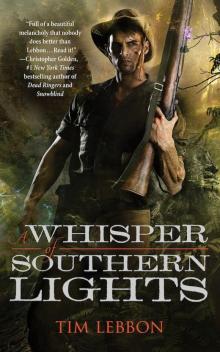 A Whisper of Southern Lights
A Whisper of Southern Lights Until She Sleeps
Until She Sleeps Relics--The Folded Land
Relics--The Folded Land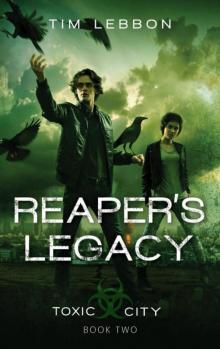 Reaper's Legacy tc-2
Reaper's Legacy tc-2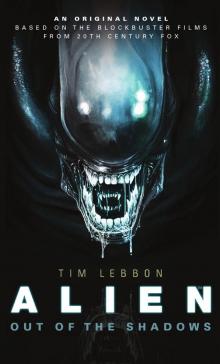 Alien: Out of the Shadows
Alien: Out of the Shadows Pieces of Hate
Pieces of Hate X-Files: Trust No One
X-Files: Trust No One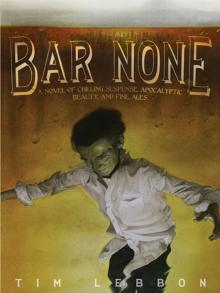 Bar None
Bar None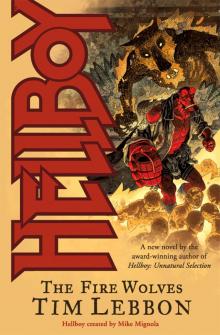 The Fire Wolves
The Fire Wolves